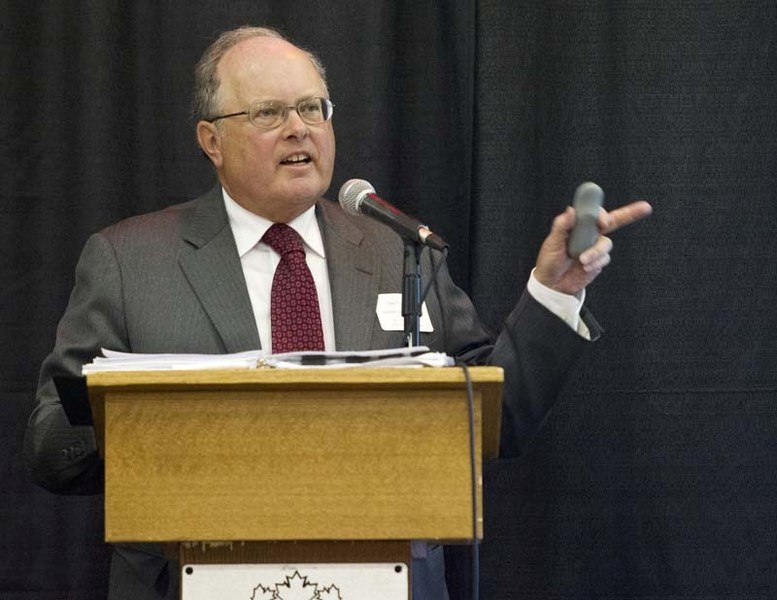Canadians need to stop thinking of “dirty oil” and broaden their energy discussion, said a 30-year veteran of the oil industry.
Don Thompson, executive advisor for sustainability and outreach at Canadian Oil Sands, spoke at Wednesday’s St. Albert and District Chamber of Commerce business lunch.
He said Canada has a diverse number of resources that could meet the growing energy demands of the world in the future. To effectively use these resources, Canadians have to reconsider their view of the oil industry first, he said.
“We all require energy. It’s what keeps us warm in the winter, it keeps us cool in the summer. It’s what allows us to move around with freedom,” he said.
Provinces such as Quebec, Manitoba, British Columbia and Newfoundland generate over 90 per cent of their electricity from hydropower, he said.
He added that Canada has a low use of coal, high use of natural gas and a thousand megawatts of wind energy in Alberta alone.
Canadians need to create a plan on how to use these resources and not restrict them, he said.
In the future, Canada’s energy plan could be a mosaic of possible resources, making it one of the top energy providers in the world.
Now, Thompson said, 80 per cent of the primary energy around the world comes from fossil fuels. With seven billion people in the world – a number projected to grow to nine or 10 billion by 2050 – he said the demand for oil will rise.
While Canada is the third largest provider of oil in the world, it stood out against countries such as Venezuela and Nigeria for its environmental approach and human rights.
Instead of labelling it “dirty oil,” he said Canadians should recognize the major changes in the oil industry in the past thirty years.
Since 1990, the oilsands have reduced their carbon footprint by 26 per cent. Companies now use air or electricity to produce oil, reducing carbon emissions by almost 50 per cent.
“In fact, only 6.9 per cent of Canada’s greenhouse gas emissions are from the oilsands, the rest is from transportation – we are a very large country – heating, building, agriculture,” he said, adding that studies from the University of Alberta showed that air quality in the Wood Buffalo region was better than in many other Canadian cities.
“That’s not to excuse anything but to put it in context.”
The oilsands further provided more than 900,000 jobs as the industry continues to grow, and uses parts and technology produced across Canada.
To change from an oil-dependent economy to a provider of broad energy resources will take at least 30 to 40 years, and cost trillions of dollar, he said.
That means the economy needs to “fire out of all cylinders.”
“That economy needs oil,” he said.




